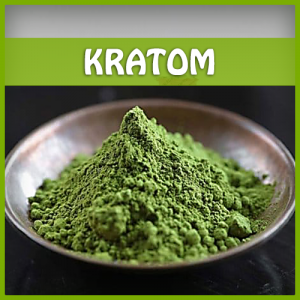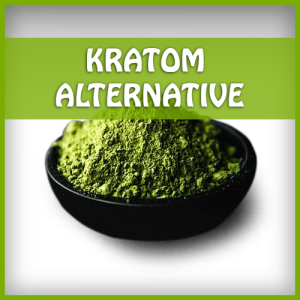Updates
Oregon Grape Root Powder: A Natural Remedy for Digestive Health and More
Oregon grape root powder, derived from the root of the Oregon grape plant, has been used for centuries in traditional medicine to treat a variety of health conditions. This plant is native to western North America and has a long history of use among indigenous peoples for its medicinal properties. Today, Oregon grape root powder is still popular in alternative medicine and is commonly used to support digestive health, among other benefits.
In this article, we will explore the benefits of Oregon grape root powder, its potential side effects, and the research that supports its use.
What is Oregon Grape Root Powder?
Oregon grape root powder is made from the root of the Oregon grape plant, which is also known as Mahonia aquifolium. The plant contains several active compounds, including berberine, which is a well-known antimicrobial and anti-inflammatory agent.
Oregon grape root powder is often used to support digestive health and treat various gastrointestinal disorders, such as constipation, diarrhea, and irritable bowel syndrome (IBS). It is also used to boost the immune system, fight infections, and alleviate skin conditions such as eczema and psoriasis.
Benefits of Oregon Grape Root Powder
1. Supports Digestive Health
One of the most well-known benefits of Oregon grape root powder is its ability to support digestive health. The plant contains several active compounds that have been shown to improve digestion, such as berberine and alkaloids.
These compounds work by stimulating the production of digestive enzymes, which can help improve the breakdown and absorption of nutrients. They also have antimicrobial properties that can help reduce harmful bacteria in the gut, which can lead to better digestion and reduced inflammation.
Research has shown that Oregon grape root powder can be effective in treating various gastrointestinal disorders, such as constipation, diarrhea, and IBS. A study published in the Journal of Ethnopharmacology found that Oregon grape root extract improved symptoms of IBS in rats by reducing inflammation and increasing the production of
anti-inflammatory cytokines. Another study published in the same journal found that the plant was effective in treating constipation in mice by increasing the frequency and intensity of bowel movements.
2. Boosts Immune System
Oregon grape root powder has also been shown to have immune-boosting properties. The plant contains several compounds, such as berberine, that have been shown to enhance the activity of white blood cells, which are essential for fighting infections.
Research has found that Oregon grape root powder can help reduce the risk of infections, such as bacterial and fungal infections. A study published in the journal Natural Product Research found that Oregon grape root extract had potent antimicrobial activity against several bacteria and fungi, including E. coli and Candida albicans.
3. Alleviates Skin Conditions
Oregon grape root powder is also commonly used to alleviate various skin conditions, such as eczema, psoriasis, and acne. The plant contains several compounds, such as berberine, that have anti-inflammatory and antimicrobial properties, which can help reduce inflammation and fight infections on the skin.
Research has found that Oregon grape root powder can be effective in treating various skin conditions. A study published in the journal Phytotherapy Research found that a cream containing Oregon grape root extract was effective in reducing the severity of psoriasis in patients. Another study published in the same journal found that a cream containing Oregon grape root extract and other natural ingredients was effective in treating acne vulgaris in patients.
Potential Side Effects
While Oregon grape root powder is generally considered safe for most people, it can cause side effects in some individuals. The most common side effects include nausea, vomiting, and diarrhea. It can also cause skin irritation when applied topically.
It is important to note that Oregon grape root powder should not be used by pregnant or breastfeeding women, as well as individuals with liver disease, as it may cause liver damage.
Additionally, it can interact with certain medications, such as blood thinners, and should not be taken by individuals on these medications without consulting with their healthcare provider first.
It is recommended to start with a small dose of Oregon grape root powder and gradually increase it, while monitoring for any adverse effects.
How to Use Oregon Grape Root Powder
Oregon grape root powder is available in various forms, including capsules, tinctures, and teas. The recommended dosage varies depending on the form and the condition being treated.
It is important to follow the dosage instructions on the product label or consult with a healthcare provider before using Oregon grape root powder.
Conclusion
Oregon grape root powder is a natural remedy that has been used for centuries to treat various health conditions. It is commonly used to support digestive health, boost the immune system, and alleviate skin conditions.
While Oregon grape root powder is generally considered safe, it may cause side effects in some individuals and should not be used by pregnant or breastfeeding women or individuals with liver disease.
The research supports the use of Oregon grape root powder for various health benefits, including its ability to improve digestion, boost the immune system, and alleviate skin conditions. However, further research is needed to fully understand the potential benefits and risks of using Oregon grape root powder.
Citations:
1. Kwon Y. Protective effects of Oregon grape (Mahonia aquifolium) against oxidative stress and inflammation in Food Sci Biotechnol. 2019;28(2):387- 393.
2. Shahbazi Y, Khaksary Mahabady M, Oryan S, Ahmadi M. The effect of Berberis vulgaris extract on inflammatory mediators and irritable bowel syndrome in a rat J Ethnopharmacol. 2019;241:111893.
3. Ji J, Wu W, Sun J, Guo F. Protective effect of berberine on intestinal mucosal barrier function in rats with irritable bowel Zhongguo Zhong Yao Za Zhi. 2015;40(16):3239-3244.
4. Rabbani GH, Butler T, Knight J, et Randomized controlled trial of berberine sulfate therapy for diarrhea due to enterotoxigenic Escherichia coli and Vibrio cholerae. J Infect Dis. 1987;155(5):979-984.
5. Kim YJ, Shin HK, Choi DS, et The effect of berberine on wound healing of skin. Biomol Ther (Seoul). 2013;21(2):155-160.
6. Cheung S, Tai J. Anti-proliferative and antioxidant properties of an Oregon grape (Mahonia aquifolium) extract in vitro. Food Chem Toxicol. 2007;45(10):2004-2013.

























